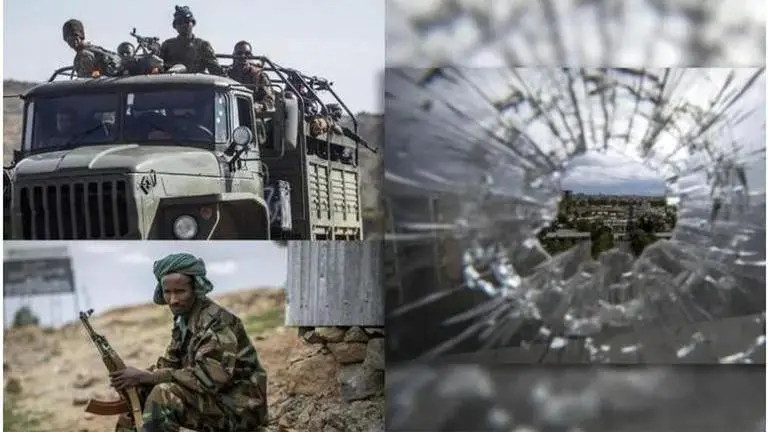Updated 21 July 2021 at 19:23 IST
Is Ethiopia on the brink of civil war? What is Tigray conflict and who is backing whom?
Thousands have been killed since clashes broke out in November 2020 and over 2 million people have been displaced in Ethiopia's northern region.
- World News
- 4 min read

In a recent development amid the militant uprising in Ethiopia, special forces and insurgents from a number of Ethiopia's regions have mobilised to back the federal government's military operations in Tigray, a region in the country. This is said to lead to the escalation of the conflict in the country. With regular forces from Amhara also joining the clashes, a large region abutting the south of Tigray is disrupted post polls.
Days after Ethiopian PM Abiy Ahmed recorded a landslide victory in the recently concluded Parliamentary elections, a powerful rebellion group led by an ethnic faction seized a major town of Ethiopia. The declaration made by this rebellion association, Tigray People’s Liberation Front (TPLF), claimed they controlled Korem, a town 170 km south of Mekelle, and even provoked a coup in the area of Alamata. Along with this, at least six more regions have become a part of the conflict including Oromia, which is the country's most populous region.
Insurgency on the rise in Ethiopia
Thousands have been killed since clashes broke out in November 2020 and over 2 million people have been displaced in Ethiopia's northern region. In June 2020, Ethiopia had witnessed widespread ethnic clashes following the killing of prominent persons in the country such as Oromo singer Hachalu Hundessa. In fact, even prior to the COVID-19 pandemic, the Abiy-led administration could not get hold of the country's wrecked economy.
It is pertinent to note that Ethiopia has a federal system with 10 regional states and two city administrations which are primarily segmented based on ethnicities. Each has its own special forces, plus local militia units that are often comprised of farmers similar to a home guard unit.
Advertisement
TPLF demands restoration of prerevolutionary borders
According to TPLF spokesperson Getachew Reda, the organisation seeks restoration of prerevolutionary borders with transport links to be functional for the public. They further demand humanitarian aid that has been allegedly blocked by the Abiy Ahmed-led government or their allies. Denying the claims of the rebel group, the authorities have said they are rebuilding infrastructure.
Meanwhile, Ethiopian military spokesman Colonel Getnet Adane said that their armed forces had declared a ceasefire after troops pulled out of Mekelle. Denying claims made by the military spokesman, the TPLF called the ceasefire 'a joke'.
Advertisement
Tigray conflict causing humanitarian crisis
Meanwhile, the country is beholding the worst ever famine. According to UN reports, not less than 3,50,000 persons in Tigray are facing famine whereas the US Agency for International Development estimated the number could have risen to 9,00,000.
In order to provide assistance to the crisis, the United Nations World Food Programme (WFP) convoy of 50 trucks arrived in the Tigrayan capital of Mekelle on July 12 with 900 metric tons of food as well as other emergency supplies. However, double this number of trucks are required every day to redress the boundless humanitarian grievances in Ethiopia.
Why has conflict started in Tigray?
While experts have said that the conflict triggered when Tigray, a region of Ethiopia, held local elections in a mutiny against the Ethiopian federal government. According to international news agencies' reports, these elections were considered illegal as they were in defiance of the government's apparatus. This essentially led to conflict with Tigray authorities.
The structure of Ethiopia's federal system acknowledges the country's ten regions' autonomy. They even have their own parliaments along with security forces, and a right to vote for an independent rule. Purportedly, Abiy has detained, fired and reduced the importance of Tigray authorities after holding the office since 2018. Tigray's waning hegemony with a considerable reduction in officials has become the bone of contention over the years.
Published By : Srishti Jha
Published On: 21 July 2021 at 19:23 IST
